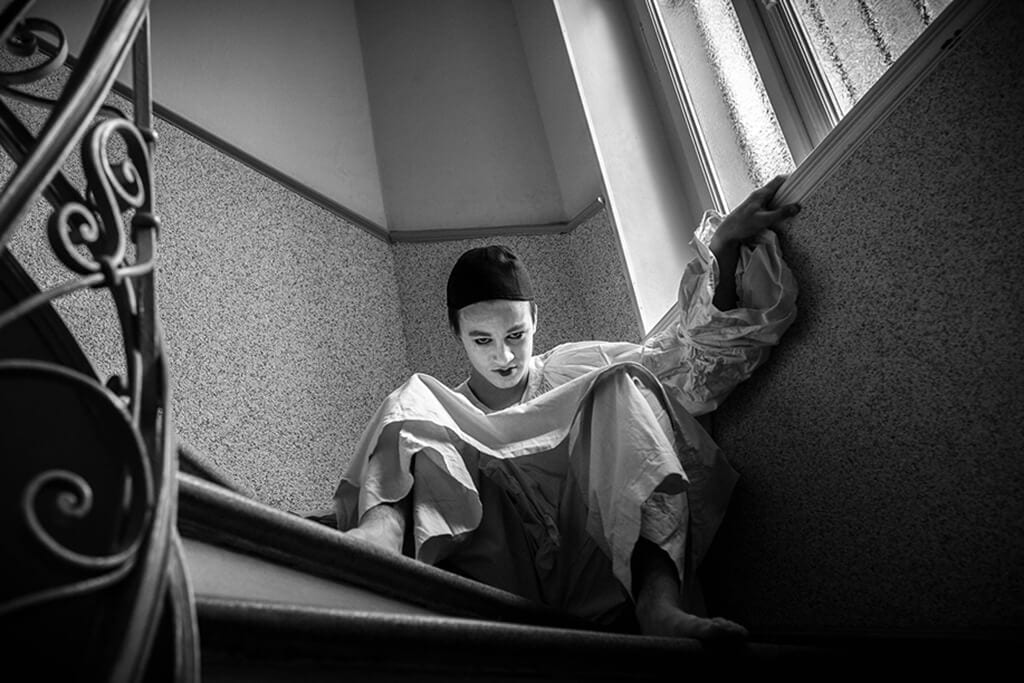Pierrot Lunaire is a piece of dance theatre inspired by the French poems of symbolist Belgian poet Albert Giraud of the same title, whose protagonist Pierrot has traditionally been the sad clown of French Comédie Italienne, the comically naive servant desperately in love with Colombine. In the adaptation, set in an English country house in the Victorian era, the roles are strangely reversed: a French governess shares her passion for the poetry of “Pierrot Lunaire” with her young charge but, isolated and homesick, she finds herself increasingly haunted by the enigmatic figure of Pierrot.
While the premises of the play seem to be the perfect opportunity to explore the beauty and imaginativeness of Giraud’s poems within the precise confines of a well-know character and situation, a lack of coherence quickly becomes apparent. Pierrot is introduced to the audience two thirds in the play, leaving little time to uncover his charming pathos. Confusingly, the narrative is neither told nor suggestively expressed, with the characters seemingly experiencing unfounded feelings and emotions, mostly of a very depressive nature. While the poems provide the lyrics for the original songs, the music itself does not seem to add any sensitive layer, something which the simple use of Schoenberg could have done; the use of “Au Clair de la Lune” is however not resisted. The diverse elements of contemporary dancing in this late 19th century setting are scattered and puzzling. Finally, the symbolism of the poems is used in the mise-en-scene in a very literal manner, which does nothing to engage the audience further on an intellectual or emotional level.
Ironically -but without any irony-, the play achieves the symbolist poets’ objective to put the high creative project into question.It was a great disappointment from the Anglo-French company Théâtre Volière which “Poilu”/Tommy was award-nominated as Off West End Best Production in 2014. Moreover, it felt a waste of young talents, as although being required a wide spectrum of skills – acting, singing, and dancing -, Audrey L’Ebrellec, Jan Wood & Gabriel Wood, all played their parts perfectly well.

